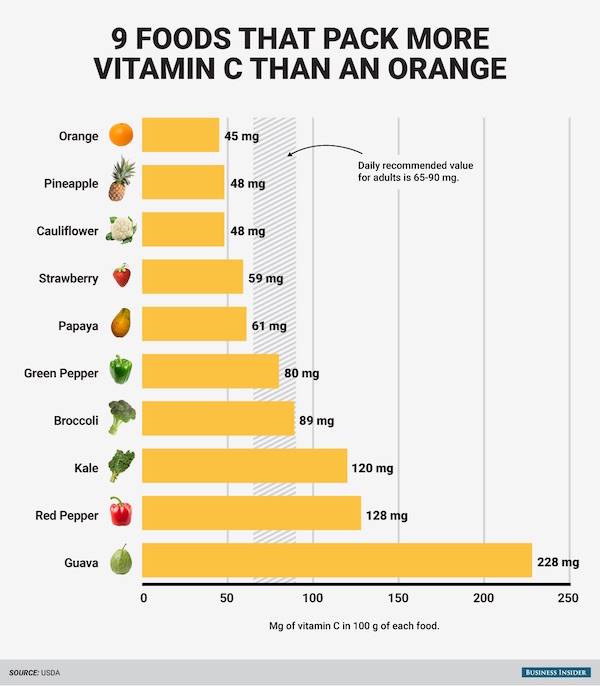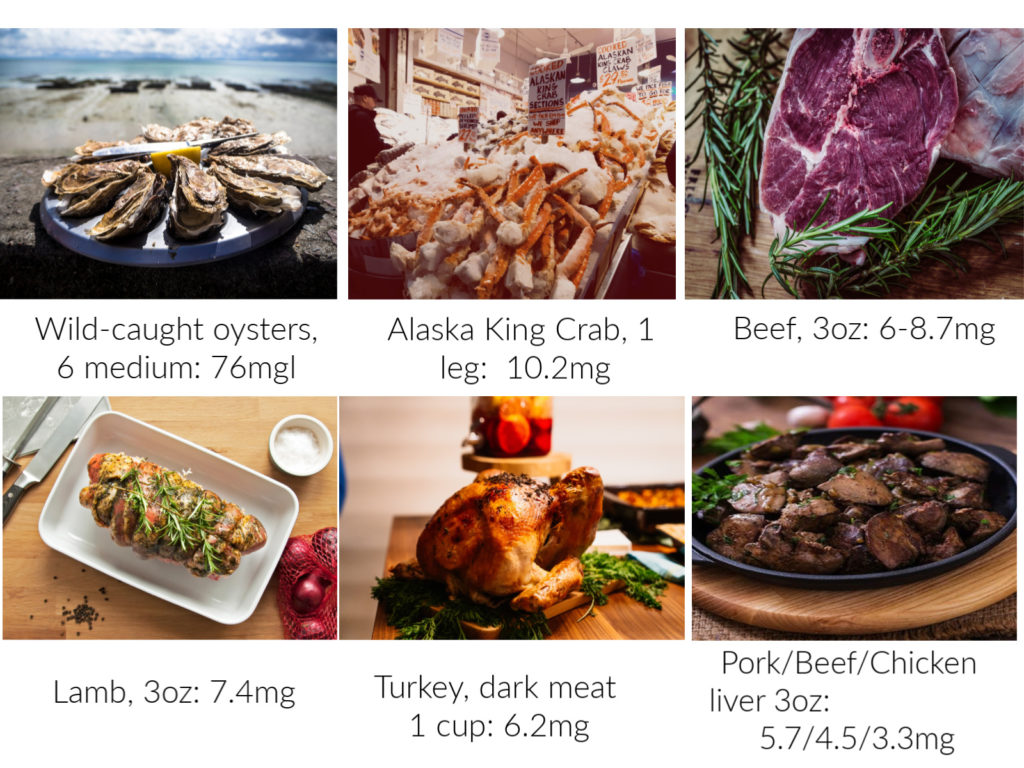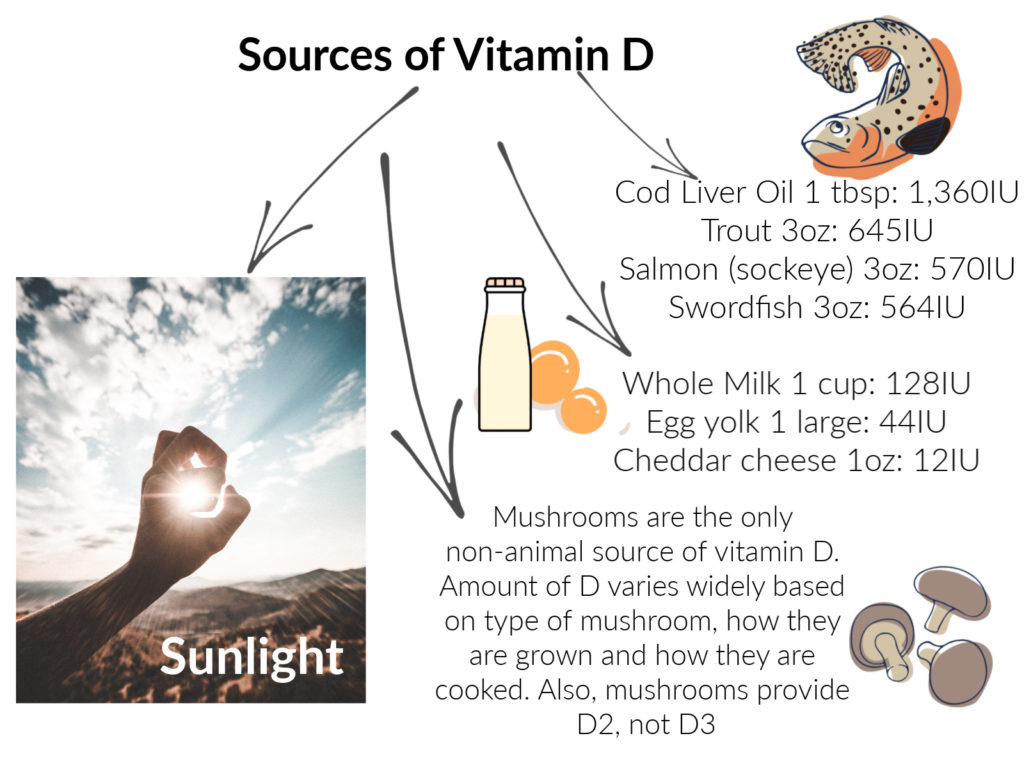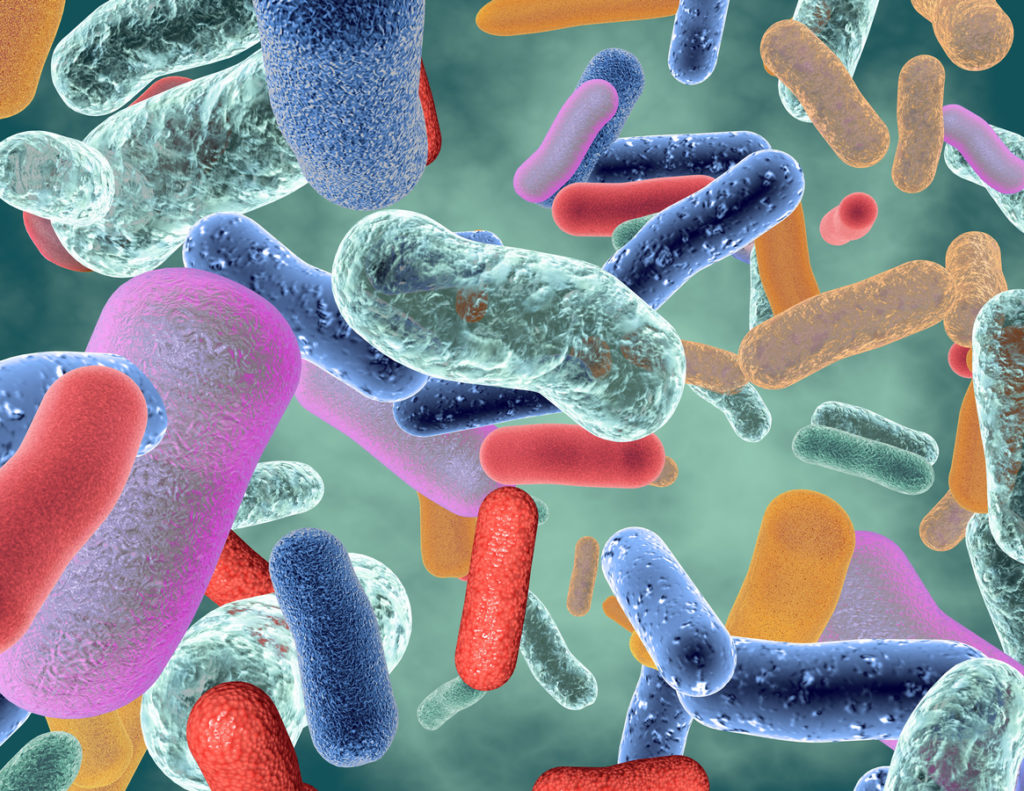COVID-19 is a very new virus that we have much to learn about. To complicate matters, this virus seems to have the ability to rapidly mutate and has a strong “stickiness” to human cells. The good news is that our immune system can do amazing things. The immune system is very complex and must stay in balance, or homeostasis. A sluggish immune system will make us more susceptible to disease. An over-active immune system will end up causing more damage to our body than the invading virus may. There are so many holistic things that we can do to make our immune systems as healthy as possible. Also, there are ways we can avoid throwing it out of homeostasis. This can be achieved through lifestyle and nutrition. Read on to find out about how to fight COVID-19 with nutrition.
What We Know About COVID-19
- Like many corona viruses, COVID-19 started out as an animal virus. All viruses mutate to improve their ability to survive and spread. COVID-19’s mutations, causing it to be transferable between people, is a normal part of virus behavior.
- COVID-19 is more contagious than some other viruses, because it “sticks” to our cells much more rapidly.
- There is a huge variance in how people react to COVID-19 infection. Some have no symptoms and are carriers, some have mild symptoms and then 20% of those infected require hospitalization.
- Severe illness is not the fault of COVID-19, but to the individual immune system. Some peoples’ immune systems go berserk and release huge amount of chemicals, designed to kill viruses, in the wrong direction. When the immune system misfires, these chemicals end up attacking and injuring our bodies. This situation, called Cytokine Storm Syndrome, has been the cause of pneumonia, and damage to the lungs.
- All this being said, corona viruses have been around for hundreds of years and about 20% of common colds come from corona viruses.
Facts about the immune system
- The immune system is a lethal germ killing machine. It can gobble up parasites, tear up viruses and destroy bacteria, when it’s working at its best.
- Many things in our environment and diet can deplete our immune system causing it to be less effective or even over reactive. Depleted nutrients in our soil, increased use of pesticides, conventional farming practices, exposure to heavy metals and over-use of pharmaceuticals stresses our immune system.
- In all its complexity, the immune system must be in balance. When the immune system is too relaxed, we are at risk of infection. Conversely, an immune system that is too active can cause damage to the body, chronic inflammatory disease and autoimmune disease.
How to Naturally Support Your Immune System
With COVID-19 the importance of immune-balance can be seen. A healthy immune system, in homeostasis, is helping to prevent infection or greatly reduce the severity and length of infection in many people. Take time to re-evaluate the steps you’re taking to boost your immune system and keep your body strong. To fight COVID-19 with nutrition is an incredibly effective method.
Reduce or Eliminate Alcohol Intake
Alcohol sales are spiking during the COVID-19 outbreak. We are socially isolated, bored and stressed and alcohol is an easy coping mechanism. Unfortunately, excessive alcohol intake is linked to lowered immunity and decreased ability to recover from infection.
Much of our immunity is found in the gut. The lining of our small intestine protects the internal organs from the outside world. It also houses immune cells and helps us absorb vital nutrients that help strengthen our immune system. Alcohol kills off our good bacteria and allows bad bacteria to thrive. Alcohol also wears down the lining of our small intestine allowing bacteria to leak into our body, decreases our ability to absorb nutrients and puts stress on our immune system. Similar damage is seen with the protective lining in the lungs. Due to it’s negative effect on certain white blood cells, alcohol can also decrease the effectiveness of vaccines.
Getting Adequate Sleep
Not meeting your sleep needs of 7-8 hours a night can impact your immunity in two ways. First, it can cause chronic low-grade inflammation which, eventually causes damage to the body. Lack of sleep also depletes key parts of your immune system rendering it less able to fight off disease and infection. This immune depletion has also been shown to significantly decrease the protective effects of vaccines.
Identifying and Correcting Food Sensitivities
Food sensitivities have become prevalent in recent years, stemming from damage to the lining of the small intestine. Westernized diets, medications and toxins cause this damage. Food sensitivities, gone unchecked, create chronic inflammation in the body and can leave you more susceptible to certain infections. Food sensitivities vary greatly from one person to the next. A dietitian can provide you with a blood test and personalized nutritional advice to help correct food sensitivities. Some of the following symptoms indicate a potential food sensitivity:
- Stomach issues like bloating, gas, diarrhea or constipation
- Persistent fatigue and lack of energy
- Achy joints
- Skin issues like acne, psoriasis and eczema
- Brain fog and inability to focus
- Migraines
- Fibromyalgia and other nerve pain
- Restless leg syndrome
- Polycystic ovary syndrome (PCOS)
For more information on Mediator Release Test for food sensitivities visit http://www.nowleap.com
COVID-19 Fight with Nutrition: Taking Supplements
Fighting COVID-19 starts with nutrition. Ideally, we get all our essential nutrients from food. But the reality is that food is not providing all that we need. This is due to depleted soil, conventional farming practices, processed foods with preservatives, medications and exposure chemicals.
From one person to the next, there can be huge differences in how many nutrients we are physically able to absorb through digestion due to health conditions, age and even our DNA. This is where supplements can hold a very beneficial place in our diet.
There are many claims supporting the use of a supplements but proceed with caution and make sure the supplement is safe and appropriate for you, specifically. A dietitian will help you with personalized recommendations, make sure you’re getting quality supplements and ensure that you’re not paying lots of money for things that you don’t need.
Vitamin C
Vitamin C is an essential nutrient and something that we must consume in the diet since we cannot make it ourselves. As a potent antioxidant, vitamin C helps protect the body from environmental toxins and oxidative stress to the body. Vitamin C helps enhance the development of white blood cells and their ability to kill off pathogens. At the location of infected wounds, vitamin C helps clear out dead white blood cells and debris (puss) and in doing so, decreases the risk of tissue damage. During infection, vitamin C acts as a natural antihistamine and anti-inflammatory, which can help prevent an overreaction of the immune system.

To prevent an infection, dietary vitamin C intake needs to be at least 100-200mg/day. To address an already existent infection, a much higher dose (usually about 500mg twice a day) is needed to compensate for the increased demand on the immune system.
Adequate vitamin C can be acquired through diet, but epidemiological studies show that vitamin C deficiency is still common in the united states, as the fourth leading nutrient deficiency. The reasons for deficiency are due to reduced intake and limited body stores. Other factors such as pollution, smoking, infections and chronic inflammation drastically increase our vitamin C requirements.
Zinc
Zinc is essential to immune function but zinc’s role is somewhat complex because too little or too much zinc can negatively affect the immune system. Optimal immunity requires a perfect balance, or homeostasis, of zinc. Zinc helps decrease chronic inflammation, fights cancer and helps the immune system build a strong arsenal of white blood cells to kill pathogens. Research has shown that zinc has an antiviral effect by interfering with the process that causes viruses to attach and grow within the nasal passages.

The human body is not able to store zinc, so even though severe deficiency is rare, mild deficiency is quite common. Certain populations, such as the elderly, vegans, vegetarians and those taking stomach acid-reducing medication, are at a much higher risk for zinc deficiency. The body absorbs 20-40% of zinc in food. Zinc from animal foods is more readily absorbed (twice as much) than zinc from plant foods.
For general immunity it is best to take a multivitamin with low levels of zinc providing no less than 15mg/day for adults. Zinc lozenges, taken within the first 24 hours of a respiratory infection, have shown effectiveness in reducing the length and severity of illness. Lozenges need to be slowly absorbed over a period of 15-30 minutes with a daily dose of about 80mg/day for up to 2 weeks.
It can be tricky to find the right supplement. Many independently-tested supplements did not contain the amount of zinc they claim to. Some supplements also contain fillers that are not beneficial, for example ingredients that bind to and prevent the absorption of zinc. A dietitian can direct you to the best options.
Vitamin D

Vitamin D is a fat-soluble vitamin that comes from three different sources: foods, sunlight and supplements. In humans, vitamin D is mainly made in the skin with exposure to UV rays. Conversely, only a small amount of vitamin D comes from foods. Most of food-based vitamin D comes from animal sources.
Considering our lifestyles of working indoors and using sunblock, getting enough vitamin D can be a challenge. The challenge of getting enough vitamin D is higher during the winter, as hours of daylight decrease. This explains one reason why we tend to get sick easier during winter months. World-wide, there is an estimated 1 billion people with vitamin D deficiency. In the United States there is vitamin D deficiency in:
- 52% infants
- 35% of adults
- 61% of the elderly
Vitamin D plays a significant role in our immune system by enhancing the germ-fighting abilities of our white blood cells. Our small intestine is an immunity hub containing almost seventy percent of our immune system! Vitamin D plays a significant role in intestinal health, functionality and integrity. Intestinal health is crucial to protecting the body from pathogens and chronic inflammation. Deficiency has been shown to increase a person’s risk for respiratory infections. Alternatively, adequate vitamin D intake protects against infection.
Probiotics

Probiotics are beneficial bacteria that support the health of the gut and support immune system functioning and regulation. Lactic acid-producing bacteria have been shown to support immune function and exhibit antiviral behavior. Studies have shown that probiotic use can decrease the number of respiratory infections, particularly in children.
- Lactobacillus plantarum and Lactobacillus paracasei: Helps prevent colds and respiratory symptoms as well as reducing the severity and length of infection.
- Lactobaciilus acidophilus and Bifidobacterium lactis: decreases the severity and length of acute respiratory infections. Doesn’t necessarily prevent infection.
- Lactobacillus plantarum and Lactobacillus salivarius: Shown, in laboratory studies, to fight corona viruses.
Summary
On the internet supplement claims abound but which ones are effective and, most importantly, safe? How do we best fight COVID-19 with nutrition? Based on a strong body of research vitamin C, Zinc, vitamin D and probiotics have been shown to help support a healthy immune system as well as demonstrate some antiviral properties. Use a combination of healthy diet (try these healthy recipes) and supplements.
Note: these supplements can help in the prevention of COVID-19 and may possibly help reduce symptoms. None of these modalities should be considered cures for COVID-19. Always consult your physician or healthcare provider prior to starting supplements. For the latest information and recommendations on COVID-19, please consult the Centers for Disease Control and Prevention at www.cdc.gov
Next Steps
Want to get started building your arsenal of immune defenses? I have selected professional grade supplements making sure they are high-quality, contain no unhealthy additives and are handled with care. Click on my supplement dispensary link to select your supplements and start fighting COVID-19 with nutrition. All supplements are 10% off.

Want Personalized recommendations? Let’s schedule a session. During COVID-19 and social distancing, I am available for video and phone consultations
Citations
- Jin, Y.-H., Cai, L., Cheng, Z.-S., Cheng, H., Deng, T., Fan, Y.-P., … Wang, X.-H. (2020). A rapid advice guideline for the diagnosis and treatment of 2019 novel coronavirus (2019-nCoV) infected pneumonia (standard version). Military Medical Research, 7(1). https://doi.org/10.1186/s40779-020-0233-6
- Chen, N., Zhou, M., Dong, X., Qu, J., Gong, F., Han, Y., … Zhang, L. (2020). Epidemiological and clinical characteristics of 99 cases of 2019 novel coronavirus pneumonia in Wuhan, China: a descriptive study. The Lancet, 395(10223), 507–513. https://doi.org/10.1016/s0140-6736(20)30211-7
- Lei C, Huigo L, Wei L, et al. Analysis of clinical features of 29 patients with 2019 novel coronavirus pneumonia. Chin J Tuberc Respir Dis. 2020 Feb;43:E005 [Epub ahead of print].
- https://doi.org/10.1001/jama.2020.1585
- Sarkar, D., Jung, K., & Wang, H. (2015). Alcohol and the Immune System. Alcohol Research Current Reviews, 37(2), 153–155. Retrieved from https://www.ncbi.nlm.nih.gov/pmc/articles/PMC4590612/
- Besedovsky, L., Lange, T., & Born, J. (2011). Sleep and immune function. Pflügers Archiv – European Journal of Physiology, 463(1), 121–137. https://doi.org/10.1007/s00424-011-1044-0
- Besedovsky, L., Lange, T., & Haack, M. (2019). The Sleep-Immune Crosstalk in Health and Disease. Physiological Reviews, 99(3), 1325–1380. https://doi.org/10.1152/physrev.00010.2018
- Carr, A., & Maggini, S. (2017). Vitamin C and Immune Function. Nutrients, 9(11), 1211. https://doi.org/10.3390/nu9111211
- Zinc as a Gatekeeper of Immune Function. (2017). Nutrients, 9(12), 1286. https://doi.org/10.3390/nu9121286
- Skrajnowska, D., & Bobrowska-Korczak, B. (2019). Role of Zinc in Immune System and Anti-Cancer Defense Mechanisms. Nutrients, 11(10), 2273. https://doi.org/10.3390/nu11102273
- Hemilä, H., & Chalker, E. (2015). The effectiveness of high dose zinc acetate lozenges on various common cold symptoms: a meta-analysis. BMC Family Practice, 16(1). https://doi.org/10.1186/s12875-015-0237-6
- Vighi, G., Marcucci, F., Sensi, L., Di Cara, G., & Frati, F. (2008). Allergy and the gastrointestinal system. Clinical & Experimental Immunology, 153, 3–6. https://doi.org/10.1111/j.1365-2249.2008.03713.x
- Prietl, B., Treiber, G., Pieber, T., & Amrein, K. (2013). Vitamin D and Immune Function. Nutrients, 5(7), 2502–2521. https://doi.org/10.3390/nu5072502
- Fakhoury, Hana. M. A., Kvietys, P. R., AlKattan, W., Anouti, F. A., Elahi, M. A., Karras, S. N., & Grant, W. B. (2020). Vitamin D and intestinal homeostasis: Barrier, microbiota, and immune modulation. The Journal of Steroid Biochemistry and Molecular Biology, 200, 105663. https://doi.org/10.1016/j.jsbmb.2020.105663
- Sizar O, Khare S, Goyal A, et al. Vitamin D Deficiency. [Updated 2020 Feb 26]. In: StatPearls [Internet]. Treasure Island (FL): StatPearls Publishing; 2020 Jan-. Available from: https://www.ncbi.nlm.nih.gov/books/NBK532266/
- Hughes, D. A., & Norton, R. (2009). Vitamin D and respiratory health. Clinical & Experimental Immunology, 158(1), 20–25. https://doi.org/10.1111/j.1365-2249.2009.04001.x
- Block, K. I., & Mead, M. N. (2003). Immune System Effects of Echinacea, Ginseng, and Astragalus: A Review. Integrative Cancer Therapies, 2(3), 247–267. https://doi.org/10.1177/1534735403256419
- Zhang, P., Liu, X., Liu, H., Wang, W., Liu, X., Li, X., & Wu, X. (2018). Astragalus polysaccharides inhibit avian infectious bronchitis virus infection by regulating viral replication. Microbial Pathogenesis, 114, 124–128. https://doi.org/10.1016/j.micpath.2017.11.026
- Hima, L., Pratap, U. P., Karrunanithi, S., Ravichandran, K. A., Vasantharekha, R., & ThyagaRajan, S. (2019). Virgin coconut oil supplementation in diet modulates immunity mediated through survival signaling pathways in rats. Journal of Complementary and Integrative Medicine, 17(1). https://doi.org/10.1515/jcim-2019-0114
- DebMandal, M., & Mandal, S. (2011). Coconut (Cocos nucifera L.: Arecaceae): In health promotion and disease prevention. Asian Pacific Journal of Tropical Medicine, 4(3), 241–247. https://doi.org/10.1016/s1995-7645(11)60078-3
- Wu, W., Li, R., Li, X., He, J., Jiang, S., Liu, S., & Yang, J. (2015). Quercetin as an Antiviral Agent Inhibits Influenza A Virus (IAV) Entry. Viruses, 8(1), 6. https://doi.org/10.3390/v8010006
- Uchide, N., & Toyoda, H. (2011). Antioxidant Therapy as a Potential Approach to Severe Influenza-Associated Complications. Molecules, 16(3), 2032–2052. https://doi.org/10.3390/molecules16032032
- Dajas, F. (2012). Life or death: Neuroprotective and anticancer effects of quercetin. Journal of Ethnopharmacology, 143(2), 383–396. https://doi.org/10.1016/j.jep.2012.07.005
- Catanzaro, M., Corsini, E., Rosini, M., Racchi, M., & Lanni, C. (2018). Immunomodulators Inspired by Nature: A Review on Curcumin and Echinacea. Molecules, 23(11), 2778. https://doi.org/10.3390/molecules23112778
- Hudson, J., & Vimalanathan, S. (2011). Echinacea—A Source of Potent Antivirals for Respiratory Virus Infections. Pharmaceuticals, 4(7), 1019–1031. https://doi.org/10.3390/ph4071019
- Berggren, Anna, et al. “Randomised, Double-Blind and Placebo-Controlled Study Using New Probiotic Lactobacilli for Strengthening the Body Immune Defence against Viral Infections.” European Journal of Nutrition, vol. 50, no. 3, 2010, pp. 203–210., doi:10.1007/s00394-010-0127-6.
- Gerasimov, S., Ivantsiv, V., Bobryk, L. et al. Role of short-term use of L. acidophilus DDS-1 and B. lactis UABLA-12 in acute respiratory infections in children: a randomized controlled trial. Eur J Clin Nutr 70, 463–469 (2016). https://doi.org/10.1038/ejcn.2015.171
- Maragkoudakis, Petros A., et al. “Lactic Acid Bacteria Efficiently Protect Human and Animal Intestinal Epithelial and Immune Cells from Enteric Virus Infection.” International Journal of Food Microbiology, vol. 141, 2010, doi:10.1016/j.ijfoodmicro.2009.12.024.
- J, Rejish Kumar V., et al. “Putative Probiotic Lactobacillus Spp. from Porcine Gastrointestinal Tract Inhibit Transmissible Gastroenteritis Coronavirus and Enteric Bacterial Pathogens.” Tropical Animal Health and Production, vol. 42, no. 8, 2010, pp. 1855–1860., doi:10.1007/s11250-010-9648-5.
- Gautret, Philippe, et al. “Hydroxychloroquine and Azithromycin as a Treatment of COVID-19: Results of an Open-Label Non-Randomized Clinical Trial.” International Journal of Antimicrobial Agents, 2020, p. 105949., doi:10.1016/j.ijantimicag.2020.105949.



